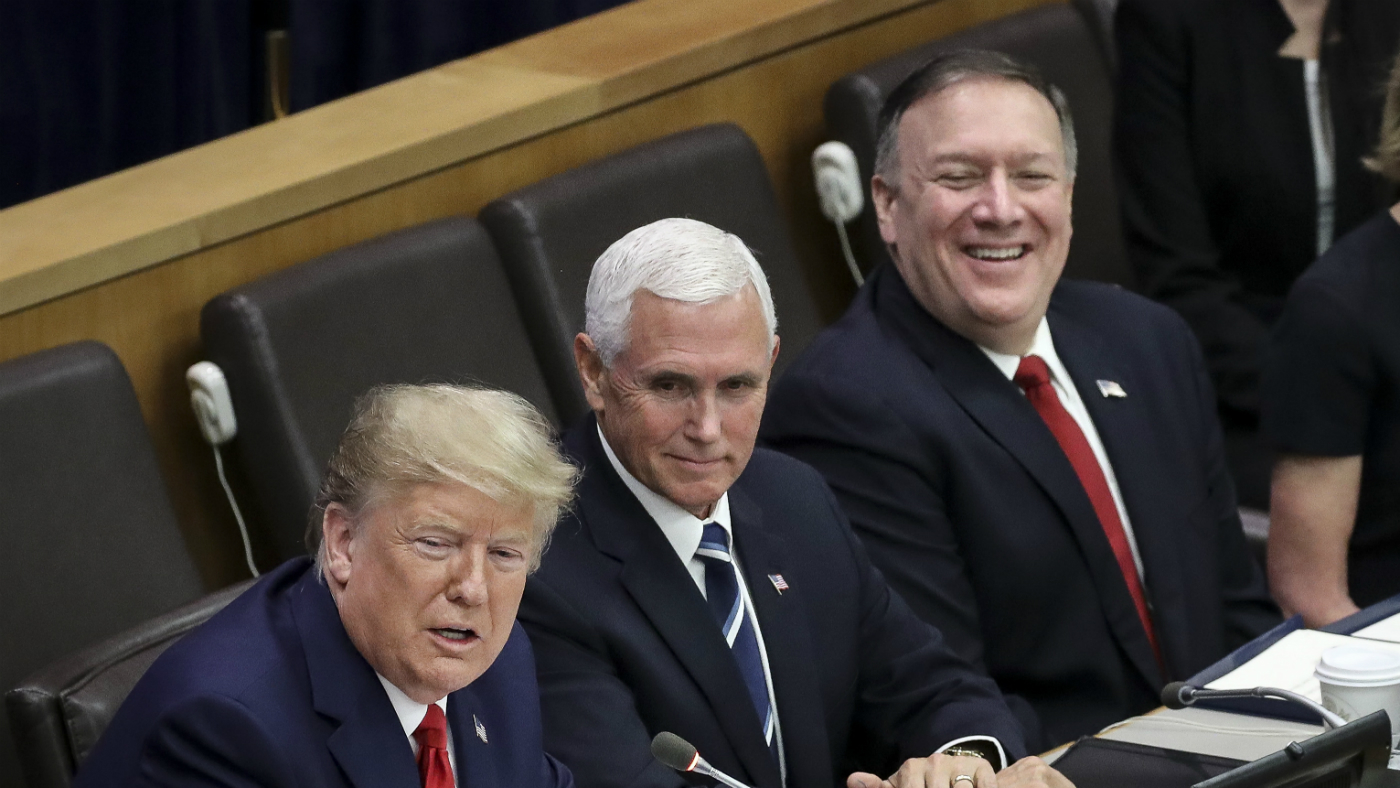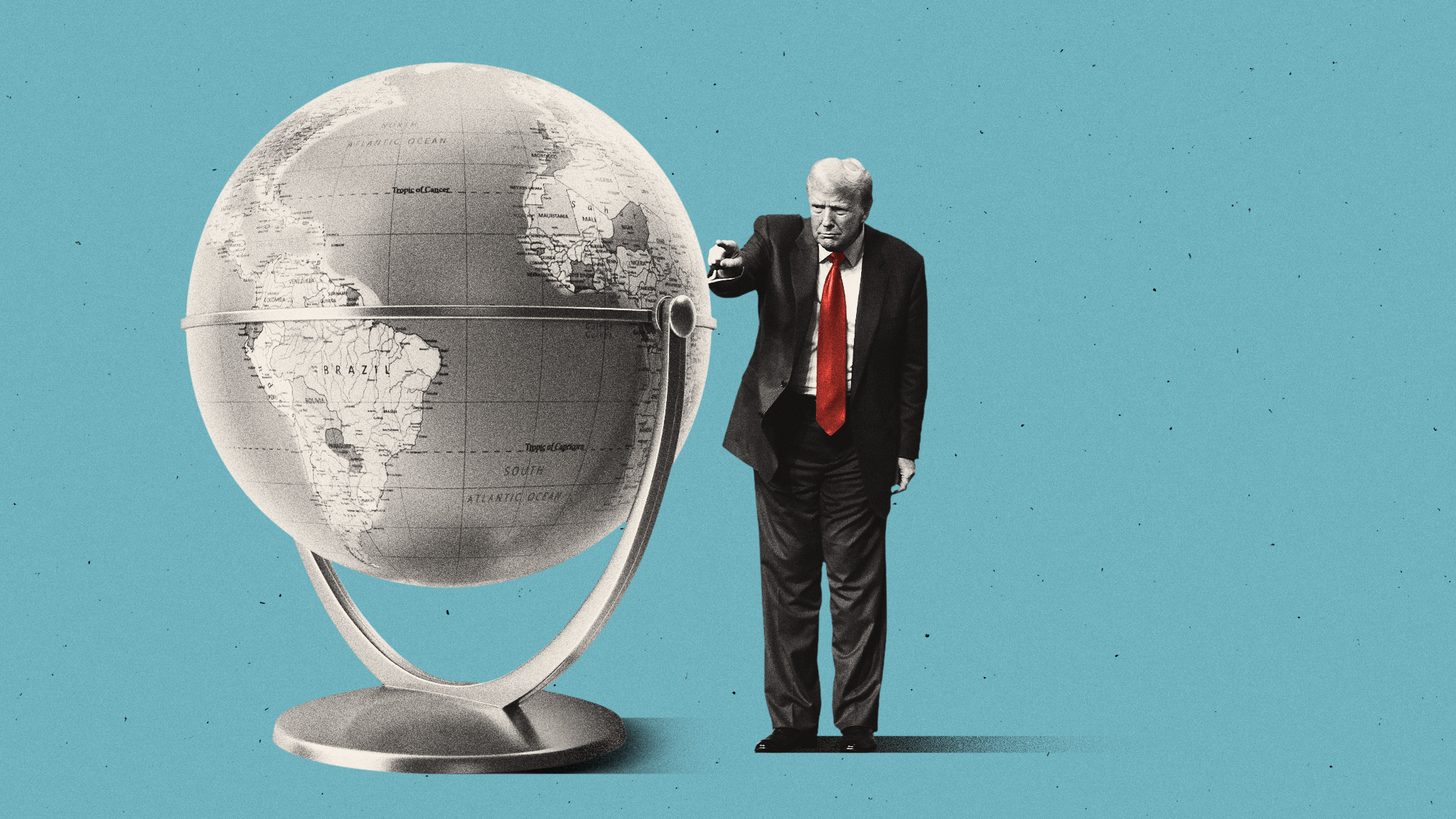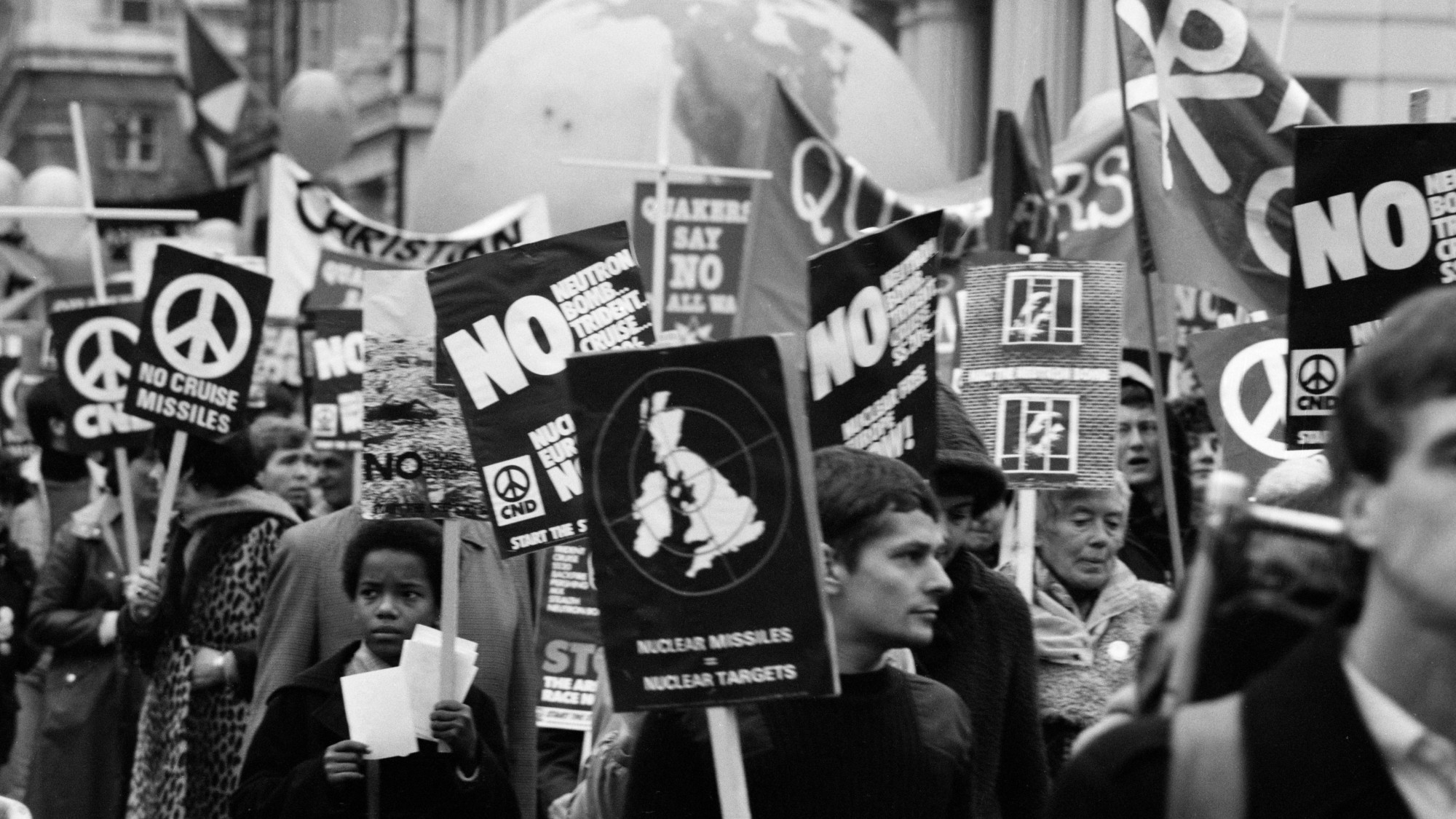Could Donald Trump’s reaction to election defeat trigger global disaster?
Outgoing president asked for ‘options’ to target Iranian nuclear site following loss to Joe Biden

A free daily email with the biggest news stories of the day – and the best features from TheWeek.com
You are now subscribed
Your newsletter sign-up was successful
Nobody was expecting Donald Trump to take his election loss gracefully, but scoping out Iranian nuclear facilities for military action is probably a more extreme reaction than most of us anticipated.
Citing four current and former US officials, The New York Times (NYT) reports that the outgoing president last week asked several top aides “whether he had options to take action against Iran’s main nuclear site in the coming weeks”.
Trump’s advisers “dissuaded” him from taking the drastic plan any further, the newspaper says. But the proposal has increased fears that Trump’s final months in office may “prove a very bumpy ride for the rest of the world”, adds The Guardian’s world affairs editor Julian Borger.
The Week
Escape your echo chamber. Get the facts behind the news, plus analysis from multiple perspectives.

Sign up for The Week's Free Newsletters
From our morning news briefing to a weekly Good News Newsletter, get the best of The Week delivered directly to your inbox.
From our morning news briefing to a weekly Good News Newsletter, get the best of The Week delivered directly to your inbox.
Nuclear option
Trump raised the prospect of an attack on Iran’s largest uranium enrichment facility - at Natanz, about 150 miles south of capital Tehran - during an Oval Office meeting on 12 November, as he continued to deny his election defeat nine days after US voters went to the polls.
According to the NYT, the meeting was attended by some of the most influential members of Trump’s inner circle, including Vice President Mike Pence, Secretary of State Mike Pompeo and chief military adviser General Mark Milley, chair of the Joint Chiefs of Staff.
The International Atomic Energy Agency had reported the previous day that Tehran’s uranium stockpile had grown to “12 times larger than permitted under the nuclear accord” that Trump abandoned in 2018.
A free daily email with the biggest news stories of the day – and the best features from TheWeek.com
While acknowledging the seriousness of the nuclear watchdog’s findings, Pence, Pompeo and Milley “warned that a strike against Iran’s facilities could easily escalate into a broader conflict”, the US paper reports.
“He asked for options. They gave him the scenarios and he ultimately decided not to go forward,” said an unnamed official.
What else might Trump do before leaving office?
Even prior to the reports that Trump had set his sights on Iran, his behaviour had been “fuelling fears about the impact a vengeful president might have on the US role on the world stage over the coming ten weeks of transition”, The Guardian’s Borger reports.
On the domestic front, Trump is expected to issue a final flurry of presidential pardons.
These anticipated pardons are “likely to benefit people close to the president who are already on his radar because he claims they were unfairly targeted for prosecution”, such as his former national security advisor Michael Flynn, ex-campaigner adviser George Papadopoulos and former campaigner manager Paul Manafort, says CNN.
But “perhaps the biggest looming” question in the US is whether Trump will pardon himself amid state investigations into his business and finances, with further scrutiny by federal investigators expected after he leaves office, the broadcaster adds.
While the president has openly discussed the idea of granting himself immunity, however, “it’s legally unlikely that would be possible - and it would not protect him from state and local investigations taking place in New York”, according to Forbes.
And most international commentators are more concerned about the potential damage that could be wrought by Trump on the global stage.
His shock decision to fire Defence Secretary Mark Esper shortly after the election “removed one of the final barriers between the president and his ability to launch the US arsenal of nuclear missiles on his own authority without consultation and perhaps even without warning”, says The Independent.
“The only other person who could prevent the president from ordering a nuclear attack would be Vice President Mike Pence, through the indirect means of declaring Trump to be insane and removing him from office,” the paper continues. But “nobody thinks that Pence would defy Trump in this way”.
Will he concede the election?
Trump is due to hand over power to president-elect Joe Biden on 20 January, but has yet to concede or fully acknowledge that he has lost the election.
This refusal to accept defeat “was inevitable given the campaign he ran”, says The Guardian, which notes that “while there is little he can practically do to remain in power, there is a political impact of a sitting president refusing to follow the norms of peaceful transition”.
Biden has called Trump’s refusal to concede an “embarrassment” that “will not help the president’s legacy”. The victorious Democrat’s campaign team has also issued a punchy statement warning that “the United States government is perfectly capable of escorting trespassers out of the White House”.
The nearest that Trump has come to acknowledging Biden as his successor was at a White House press conference on Saturday, when he told reporters that “time will tell” whose administration will remain victorious in January, The Telegraph reports.
Rumours are also circling that Trump intends to “announce his plans to run for president in the 2024 election once president-elect Biden is the certified winner of this race”, the paper says.
But given that US presidents are permitted to serve only two terms, he could not run again if he had not lost power this time round - which suggests that Trump is edging closer to accepting the election result.
-
 Switzerland could vote to cap its population
Switzerland could vote to cap its populationUnder the Radar Swiss People’s Party proposes referendum on radical anti-immigration measure to limit residents to 10 million
-
 Political cartoons for February 15
Political cartoons for February 15Cartoons Sunday's political cartoons include political ventriloquism, Europe in the middle, and more
-
 The broken water companies failing England and Wales
The broken water companies failing England and WalesExplainer With rising bills, deteriorating river health and a lack of investment, regulators face an uphill battle to stabilise the industry
-
 Munich Security Conference: a showdown between Europe and Trump?
Munich Security Conference: a showdown between Europe and Trump?Today’s Big Question Report suggests European leaders believe they can no longer rely on the US for military support – but decoupling is easier said than done
-
 New START: the final US-Russia nuclear treaty about to expire
New START: the final US-Russia nuclear treaty about to expireThe Explainer The last agreement between Washington and Moscow expires within weeks
-
 Would Europe defend Greenland from US aggression?
Would Europe defend Greenland from US aggression?Today’s Big Question ‘Mildness’ of EU pushback against Trump provocation ‘illustrates the bind Europe finds itself in’
-
 Greenland, Colombia, Cuba: where is Donald Trump eyeing up next?
Greenland, Colombia, Cuba: where is Donald Trump eyeing up next?Today's Big Question Ousting Venezuela’s leader could embolden the US administration to exert its dominance elsewhere
-
 The history of US nuclear weapons on UK soil
The history of US nuclear weapons on UK soilThe Explainer Arrangement has led to protests and dangerous mishaps
-
 Did Trump just end the US-Europe alliance?
Did Trump just end the US-Europe alliance?Today's Big Question New US national security policy drops ‘grenade’ on Europe and should serve as ‘the mother of all wake-up calls’
-
 Trump peace deal: an offer Zelenskyy can’t refuse?
Trump peace deal: an offer Zelenskyy can’t refuse?Today’s Big Question ‘Unpalatable’ US plan may strengthen embattled Ukrainian president at home
-
 Vladimir Putin’s ‘nuclear tsunami’ missile
Vladimir Putin’s ‘nuclear tsunami’ missileThe Explainer Russian president has boasted that there is no way to intercept the new weapon